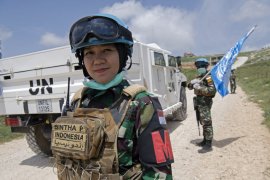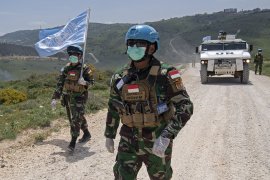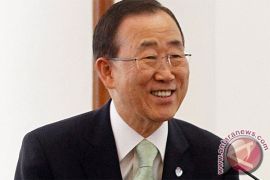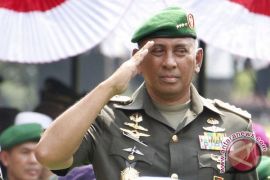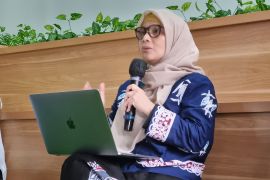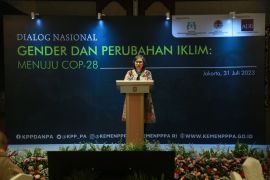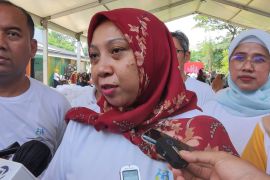" I fully support women`s engagement in peacekeeping efforts. If women get very good education, I believe they will have their own capacity to contribute to peace processes in the world," Nurhayati said here on Monday at a discussion titled "Indonesia`s Role in Peacekeeping Efforts" held by state radio station RRI`s World Service at the Sultan Hotel.
In the discussion held to mark International Day of UN Peacekeepers, Nurhayati said, like male troops, Indonesian female armed forces personnel were also capable of contributing to the efforts to maintain peace and security in the world.
Meanwhile, the chief of the Peace Mission of Indonesian Armed Forces I Gde Sunarta stated the assignment of female soldiers to serve in UN peacekeeping forces was increasing. While only one woman was sent to a peacekeeping mission in Congo in 2001, 24 were working in various countries in the world under the UN flag in the 2010-2011 period.
However, he admitted the women were not sent to combat zones. "We put them in staff positions and include them in public relations activities with NGOs and the public," he said.
"We are willing to see more female troops serving as members of UN peacekeeping forces in the future, especially now that the UN focuses on issues related to sexual abuse and protection of children," he said.
Earlier, UN Secretary General Ban Ki Moon in remarks on the International Day of Peacekeepers stated there were more than 53,000 uniformed personnel and at least 11,000 civilian staff from 94 countries serving in 15 missions across the globe. These numbers were likely to increase as the Security Council had just approved an operation in Burundi, and another was being planned for Sudan.
"The growth in missions is a welcome sign that many countries are choosing a healthier path as they emerge from violent conflicts. But it also places enormous strain on our existing resources. I urge Member States to provide the additional peacekeepers that will be needed, and the resources to go with them," he said.
He said peacekeeping had long since evolved beyond its traditional role as a monitor of ceasefires. Today, UN missions engaged in such tasks as assisting political transitions, building institutions, fostering the spread of the rule of law, supporting economic reconstruction, supervising elections, disarming militias and former combatants, facilitating humanitarian aid programs and re-settling refugees and displaced persons.
"Peacekeeping missions can never end wars by themselves. But they do offer the best possible way of ensuring there is a sustainable peace. On the International Day for UN Peacekeepers, let us remember that the most expensive peacekeeping operation costs far less than the cheapest war. That is an investment well worth making," he said.(*)
Editor: Heru Purwanto
Copyright © ANTARA 2011

